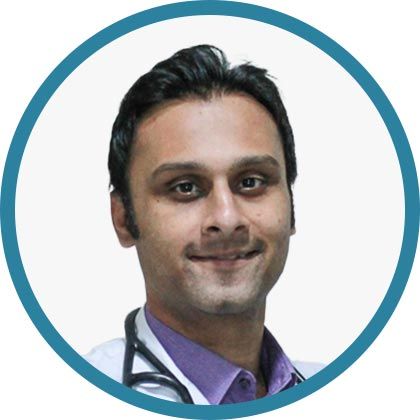Turner Syndrome: Overview of Symptoms and Treatment
Turner Syndrome is a genetic condition affecting females, leading to short stature, delayed puberty, and infertility. Learn about its symptoms, causes, diagnosis, and treatment options.

Written by Dr. Rohinipriyanka Pondugula
Reviewed by Dr. M L Ezhilarasan MBBS
Last updated on 21st Aug, 2025

Turner Syndrome is a genetic condition that affects only females, occurring when one of the X chromosomes is missing or partially missing. This condition can lead to various developmental and medical challenges, but with early diagnosis and proper care, many girls and women with Turner Syndrome can lead healthy, fulfilling lives.
In this article, we’ll explore the symptoms, causes, and treatment options for Turner Syndrome in simple, easy-to-understand terms. We’ll also share helpful tips for managing the condition and improving overall well-being.
What is Turner Syndrome?
Turner Syndrome is a chromosomal disorder that affects about 1 in every 2,500 baby girls born worldwide. Normally, females have two X chromosomes (XX), but in Turner Syndrome, one X chromosome is either missing or altered. This can lead to:
- Short stature
- Delayed puberty
- Heart and kidney problems
- Learning difficulties (in some cases)
While Turner Syndrome is a lifelong condition, early medical intervention can help manage symptoms effectively.
Common Symptoms of Turner Syndrome
Symptoms can vary from person to person, but some of the most common signs include:
Physical Symptoms
- Short height – Girls with Turner Syndrome are usually shorter than average.
- Delayed or absent puberty – Many do not start puberty naturally due to ovarian failure.
- Swollen hands and feet – At birth, some babies have puffy hands and feet.
- Broad chest with widely spaced nipples
- Low hairline at the back of the neck
- Heart or kidney abnormalities – Some may have structural issues in these organs.
Reproductive Health Issues
- Infertility – Most women with Turner Syndrome have underdeveloped ovaries, leading to infertility. However, some
may conceive with medical assistance. - Early menopause – Even if puberty occurs naturally, menopause may start earlier than usual.
Learning & Behavioral Differences
- Difficulty with math and spatial reasoning – Some girls may struggle with these subjects.
- Social challenges – Shyness or difficulty understanding social cues may occur.
Consult Top Endocrinologist
What Causes Turner Syndrome?
Turner Syndrome is not inherited from parents—it happens randomly due to an error in cell division. There are three main types:
- Monosomy X (45,X) – One X chromosome is completely missing.
- Mosaic Turner Syndrome (45,X/46,XX) – Some cells have two X chromosomes, while others have only one.
- X Chromosome Abnormalities – Part of the X chromosome may be missing or rearranged.
Since it occurs by chance, there’s no way to prevent Turner Syndrome.
How is Turner Syndrome Diagnosed?
If a doctor suspects Turner Syndrome based on physical signs, they may recommend:
- Karyotype Test – A blood test that checks chromosomes.
- Prenatal Testing – Ultrasound or amniocentesis during pregnancy may detect signs.
- Heart & Kidney Imaging – To check for related health issues.
Early diagnosis helps in managing growth and development effectively.
Get Your Test Done
Treatment and Management Options
While Turner Syndrome has no cure, treatments focus on improving quality of life.
1. Growth Hormone Therapy
- Helps increase height if started early.
- Given as daily injections until the late teens.
2. Hormone Replacement Therapy (HRT)
- Estrogen therapy helps trigger puberty and maintain bone health.
- Progesterone may be added to regulate menstrual cycles.
3. Heart & Kidney Monitoring
- Regular check-ups to detect and treat any abnormalities early.
4. Fertility Support
- Egg freezing or donor eggs may help some women conceive.
5. Learning & Psychological Support
- Special education programs and counseling can help with learning and emotional well-being.
Lifestyle Tips for Managing Turner Syndrome
1. Healthy Diet & Exercise
- A balanced diet rich in calcium and vitamin D supports bone health.
- Regular exercise strengthens muscles and improves heart function.
2. Regular Medical Check-ups
- Yearly heart, thyroid, and bone density tests are important.
3. Emotional & Social Support
- Joining support groups can help connect with others facing similar challenges.
- Counseling can assist with self-esteem and social skills.
When to See a Doctor?
If you notice:
- Slow growth in childhood
- Delayed puberty (no periods by age 15)
- Frequent ear infections or hearing loss
- Heart or kidney-related symptoms
Consult a doctor for proper evaluation. Early intervention makes a big difference!
Final Thoughts
Turner Syndrome is a manageable condition with the right medical care and support. If you or a loved one shows symptoms, don’t hesitate to seek help. With advancements in treatment, many women with Turner Syndrome lead healthy, active lives.
If you need expert advice, consider booking a consultation with an endocrinologist or genetic specialist through Apollo 24|7. Early diagnosis and personalized care can make all the difference.
Consult Top Endocrinologist
Consult Top Endocrinologist

Dr G Prathyusha
General Physician/ Internal Medicine Specialist
5 Years • MBBS DNB (Family medicine), CCEBDM (Diabetology), PGDGM (Geriatrics), Primary care Rheumatologist.
Bengaluru
PRESTIGE SHANTHINIKETAN - SOCIETY CLINIC, Bengaluru

Dr Ahmed Sayeed
General Physician/ Internal Medicine Specialist
26 Years • MBBS, M.D (GENERAL MEDICINE), MRCP (UK)
Bengaluru
Apollo Clinic, JP nagar, Bengaluru
(25+ Patients)

Dr. Shrikrishna V Acharya
Endocrinologist
25 Years • MBBS, MD, DM(Endocrinology), MRCP (Endocrinology)
Bengaluru
Apollo Clinic, JP nagar, Bengaluru
Dr Sumanth R
General Physician
2 Years • MBBS
Bengaluru
PRESTIGE SHANTHINIKETAN - SOCIETY CLINIC, Bengaluru

Dr. Balaji Jaganmohan
Diabetologist
16 Years • MG.PG.Diploma Diab(UK) Fellowship in Diabetology)
Bengaluru
Apollo Clinic, JP nagar, Bengaluru
Consult Top Endocrinologist

Dr G Prathyusha
General Physician/ Internal Medicine Specialist
5 Years • MBBS DNB (Family medicine), CCEBDM (Diabetology), PGDGM (Geriatrics), Primary care Rheumatologist.
Bengaluru
PRESTIGE SHANTHINIKETAN - SOCIETY CLINIC, Bengaluru

Dr Ahmed Sayeed
General Physician/ Internal Medicine Specialist
26 Years • MBBS, M.D (GENERAL MEDICINE), MRCP (UK)
Bengaluru
Apollo Clinic, JP nagar, Bengaluru
(25+ Patients)

Dr. Shrikrishna V Acharya
Endocrinologist
25 Years • MBBS, MD, DM(Endocrinology), MRCP (Endocrinology)
Bengaluru
Apollo Clinic, JP nagar, Bengaluru
Dr Sumanth R
General Physician
2 Years • MBBS
Bengaluru
PRESTIGE SHANTHINIKETAN - SOCIETY CLINIC, Bengaluru

Dr. Balaji Jaganmohan
Diabetologist
16 Years • MG.PG.Diploma Diab(UK) Fellowship in Diabetology)
Bengaluru
Apollo Clinic, JP nagar, Bengaluru

